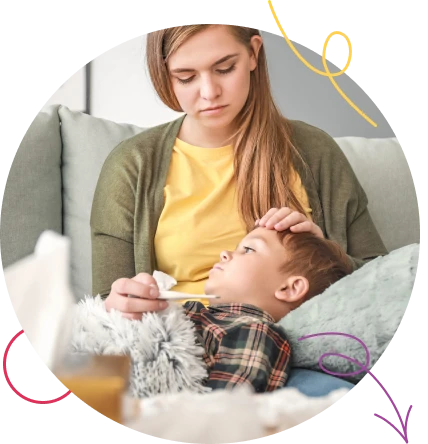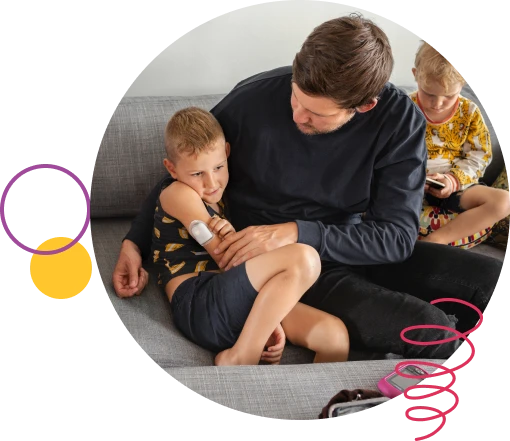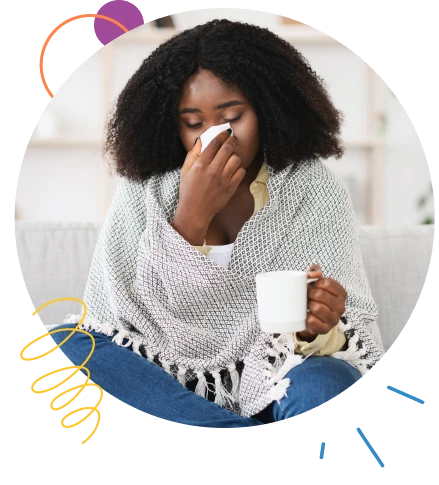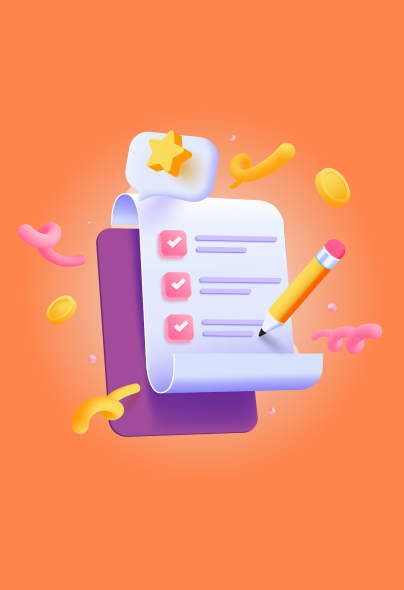The NDSS is administered by Diabetes Australia
- /
- Reduce the risk of ketoacidosis
When the body doesn’t have enough insulin to use glucose for energy, it uses fat instead. When fat is used for energy, the body makes a chemical called ketones.
Small levels of ketones in your pee or less than 0.6 mmol/L in your blood aren’t harmful. But be careful because too many ketones can be bad for you. Too many ketones can make the blood acidic. This can be dangerous because it can lead to diabetic ketoacidosis, or DKA for short.
DKA happens when there isn’t enough insulin for the body to use glucose as energy. The body uses fat for energy instead. This makes a build-up of acids in the blood called ketones.
If left untreated, the build up of ketones can lead to DKA. When you have type 1 diabetes, you need to know the warning signs of DKA and when to seek emergency care.
It’s normal to have a small amount of ketones (0.0-0.6 mmol/L in your blood), for instance, when you haven’t eaten overnight. These small amounts are nothing to worry about.
On the flip side, high ketones can lead to DKA. DKA is serious and needs urgent medical attention. But you can reduce your risk of DKA by knowing how and when to check for ketones and following your sick day action plan as needed. If you don’t have a sick day action plan, ask your doctor, diabetes nurse practitioner or diabetes educator for help. They will work with you to keep it up to date.
Don’t take enough insulin
You must start following your sick day action plan immediately and tell someone who can help you or go to an emergency department if you have any of these signs or symptoms.
You should also drink plenty of water or unsweetened fluids to avoid dehydration if you have high blood glucose and ketone levels.
Dehydration, such as feeling very thirsty, having a dry mouth, feeling weak, being confused, or not passing much urine, or peeing too much
Having a fruity or sweet smell on your breath

Your sick day action plan has all the steps you need to take to bring down high blood glucose and ketone levels. It’s important you know how and when to check for ketones. Your doctor or diabetes educator will work with you to develop your sick day action plan. But make sure you ask them to review it regularly, for example, when your diabetes management plan changes.
The best way to check for ketones is with a blood glucose meter that also checks for blood ketones. If you can’t use one, you can still check for ketones by using special strips to check your pee.


Always check for ketones:
You may need extra insulin if your blood ketones are more than 0.6 mmol/L (or more than a small amount in a urine ketone check).
Follow your sick day action plan. It’ll tell you about extra insulin doses. If you’re unsure of what to do, contact your doctor or diabetes educator for help.
When you have ketones and type 1 diabetes, don’t exercise until the levels have returned to normal. Ketones show there is not enough insulin for the body to use glucose. Exercise will burn more fat, make more ketones, and make high blood glucose go higher.

Blood ketone meters provide a number to show the ketone levels.
The following information is a general guide only. It may help you with planning what action to take, but it’s not a substitute for your sick day action plan or advice from your doctor, diabetes nurse practitioner or diabetes educator.
This is considered normal for people with diabetes.
Start following your sick day action plan. Your plan may suggest the following to help clear the ketones and reduce the risk of DKA:
This means there is a serious risk of DKA. Follow your sick day action plan and stay hydrated. Call your doctor, diabetes nurse practitioner or diabetes educator immediately if your blood glucose or ketones levels are not getting lower after following your sick day action plan.
This is a medical emergency. Go to the hospital emergency department or call 000 immediately.

This information is intended as a guide only. It should not replace individual medical advice. If you have any concerns about your health, or further questions, you should contact your health professional.


Time is Up!

Time's up